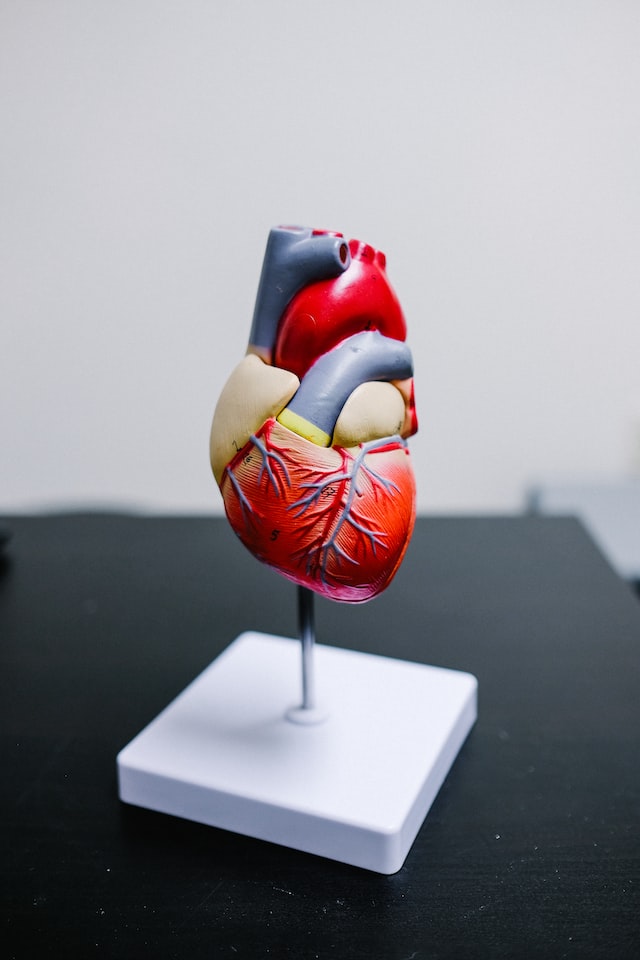
Body + Mind is reader-supported. We may earn an affiliate commission when you buy through some of the links on our site.
Many factors can contribute to heart palpitations, like exercise, anxiety or stress. They’re a common occurrence that is usually not a cause for concern. However, you shouldn’t dismiss them since there is a chance they could be a sign of something serious. Here is an exploration of how to identify the cause of your heart skipping a beat and when to worry about heart palpitations.
Heart palpitations are when your heart skips a beat or you feel a flutter in your chest. It can feel like your heart is thumping in your chest, beating too quickly or out of rhythm. Sometimes, you can feel your heart pulse in your throat or neck.
Essentially, anything that feels out of the ordinary for you can be a heart palpitation since you are aware of your heart beating and its natural rhythm. Heart palpitations can last seconds, minutes or a little longer. Though they can seem worrisome, they are common and can typically be felt when you increase your heart rate. Your heart beats faster than usual to compensate for whatever activity you’re doing or what you’re consuming.
Heart palpitations can result from anxiety symptoms, consuming caffeine or alcohol or certain medications. Many factors affect the rhythm and intensity of your heartbeat, like exercise, which increases your heart rate. You will likely feel fluttering or beating in your chest after physical activity, which is normal.
Mood disorders such as anxiety can cause heart palpitations — feeling uncomfortable about a situation can do the same. Anxiety triggers a fight or flight response in your body that can result in pulses, so they can be a symptom. Arrhythmia — which is an irregular or abnormal heartbeat — can cause you to have fear and anxiety when you experience pulsations. The fluttering in your chest can prompt you to worry about the cause, creating a vicious cycle.
Electrolyte imbalances, hormone changes, thyroid abnormalities, strenuous exercise and fever can all be causes of heart palpitations. When your adrenaline increases, your heart naturally works harder than usual. Drinking a lot of caffeine, taking medicine that contains stimulants or being stressed or sleep-deprived can make you more likely to experience an abnormal heartbeat.
Pregnancy can also cause palpitations since it increases blood volume, making your heart work harder to pump extra fluid. You shouldn’t worry about these common causes of heart palpitations. So, how do you know when to worry about them?
Everyone experiences stress and anxiety and a healthy heart can handle the occasional racing. However, some instances can be cause for your concern. If the pulses don’t begin to fade after completing an exercise, eliminating stress or changing your diet like removing caffeine or alcohol, you may need to seek a medical professional.
Another potentially worrisome sign is when beating comes on suddenly and frequently happens without doing anything that could cause them. If you experience arrhythmia or heart attack symptoms along with palpitations, you should seek immediate medical assistance by calling 911 or going to an emergency room.
Symptoms of a serious condition include shortness of breath, nausea and unprompted sweating, chest pain, dizziness, loss of consciousness or upper body pain. If your palpitations occur frequently and don’t subside after a few seconds, keep track of them and schedule a visit with your doctor. They could be harmless or they could signal something that needs your attention.
There are many ways you can manage your mild heart palpitations. If your heart races when you feel anxiety or stress, you can try a holistic approach to alleviate the symptoms. Mindfulness and meditation techniques help you relax, find your center and decrease your palpitations.
You can also identify, address and process stress triggers to minimize the risk of future palpitations. Change your diet and decrease your chocolate, caffeine, tobacco products or alcohol intake. Ensure you are staying hydrated by drinking more water or electrolytes and consider changing your sleep schedule to ensure you get the rest you need.
Regular exercise can work wonders for stress levels and boost your immune system. You can try light workouts or walks around the block to minimize the risk of increasing your heart rate to avoid palpitations. Tai chi and yoga are excellent exercises that can ease your heart palpitations and have myriad benefits for your overall health and well-being.
Anxiety symptoms can make it challenging to know when to worry about heart palpitations. However, unless you have symptoms of a heart condition or underlying disease, you are likely more aware of your heartbeat than usual and have nothing to worry about. Trust your instinct and schedule a visit with your doctor to ease your worries and ensure you don’t have cause for concern.